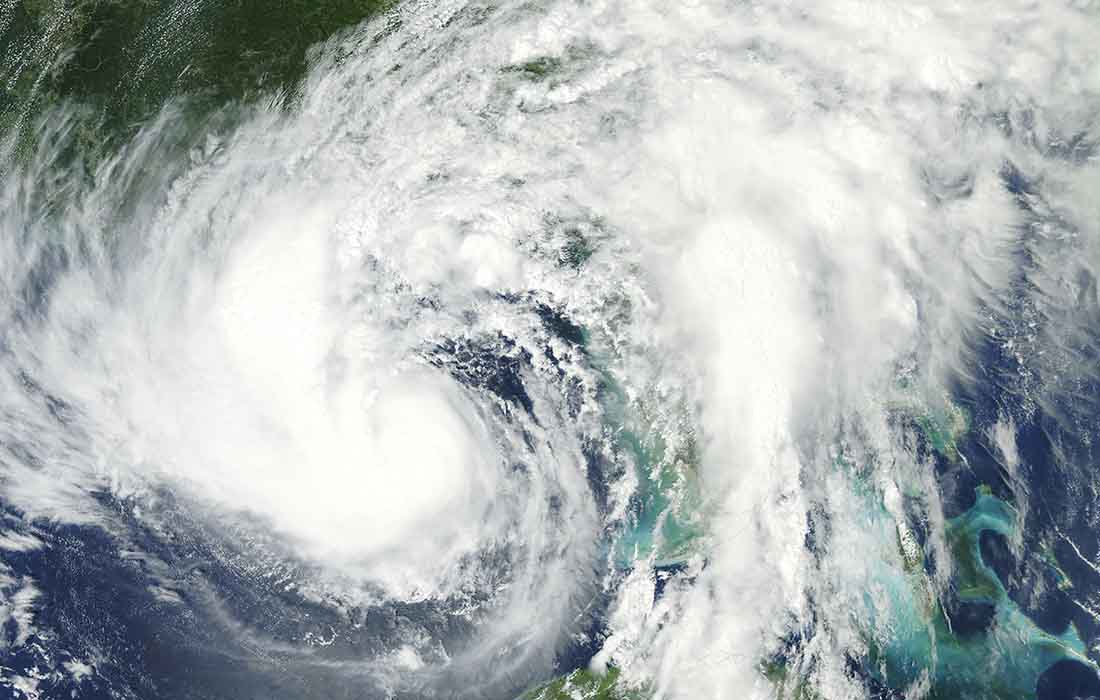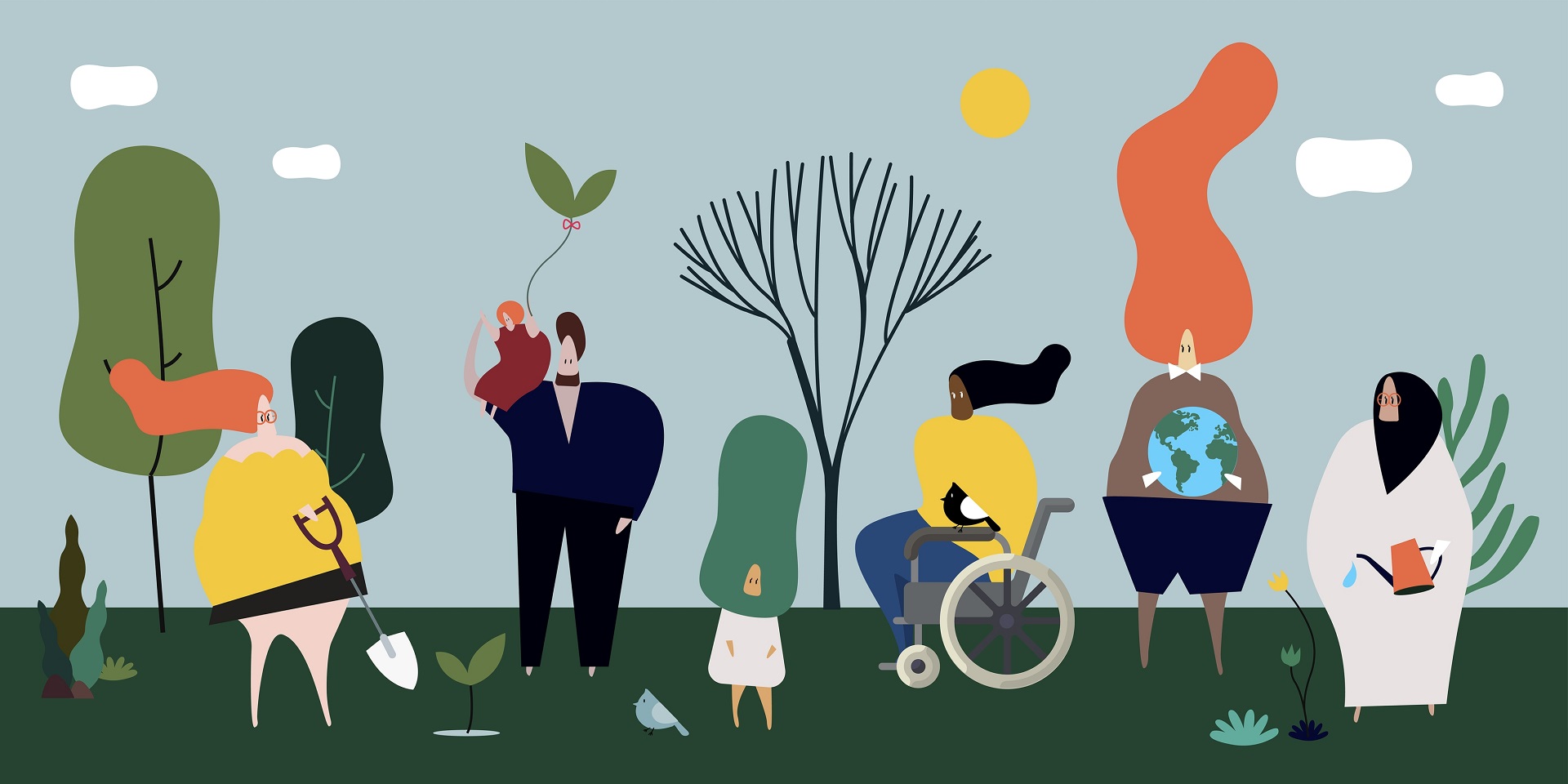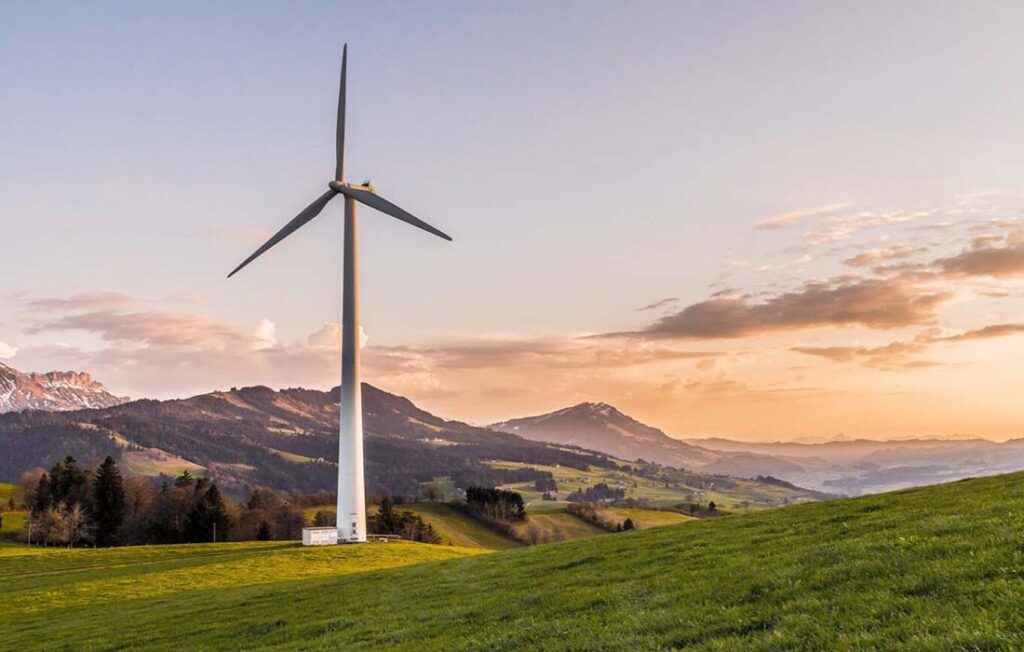The conversation within the environmental community about eco-anxiety has been ramping up, and for good reason. At a time when there are renewed calls to increase crude oil production in the face of overseas conflict, the February 2022 Intergovernmental Panel on Climate Change’s (IPCC) sixth assessment report on the status of global climate impacts hits hard. There’s no sugar-coating it; the news isn’t good.
In light of the state of our environment and the critical work that must take place, it’s natural that you might be feeling helpless. If you find yourself overwhelmed by the concept of climate change, you certainly aren’t alone. Eco-anxiety is real, it’s been recognized by the American Psychiatric Association (APA), and it’s something that we all face.
The way to curb this anxiety is by working toward a solution! To help guide this solution-based thinking, we’ve distilled the top two takeaways from the IPCC report and provided clear paths to action so that everyone can make a difference.

#1 | Damaged Ecosystems and Accelerating Solutions
Severe weather such as heat waves, droughts, and floods in Africa, Asia, North and South America, as well as hundreds of small island nations are resulting in the mass mortality of plant and wildlife species. Foliage is unable to withstand the drastic shifts in temperatures and precipitation, making it difficult for these plant species to continue to grow. As a result, animals who rely on this plant life for survival are also negatively impacted.
Entire ecosystems are being tested, and many are losing. This additionally exposes human communities to food and water insecurity. In some severe circumstances, it is already forcing mass migration and climate refugees, putting extra burden on new regions and ecosystems that are not used to this high level of demand.
What Can You Do?
You can contribute to healthy ecosystems in a variety of ways. By supporting nonprofit organizations working across the country and overseas to address threats to biodiversity and affected communities, you can directly empower conservation and preservation activities. You can also consider donating your time and money to organizations near you that are focused on environmental clean-up and ecosystem revitalization. There are opportunities to get involved with everything from trash cleanups in local parks to clean water initiatives — you may be surprised to discover how many organizations are making a difference where you live!
So how do you find the right environmental organizations to support? Sign up to be an early adopter of EarthShare’s Giving and Engagement platform — the first-ever platform designed with environmental conservation at the forefront. You can search for environmental nonprofits in your area and by issue focus, discover volunteer opportunities, and learn how to offset your carbon footprint. (Entire workplaces can enroll to create even more collaborative change!)

#2 | Climate Change Effects and Population Gaps
Climate justice describes the growing issue faced by communities of color and low-income, underserved communities who are at greater risk of experiencing the negative effects of pollution and climate change. The results of the 2022 IPCC report confirm this concern, underscoring the increasing gap between higher and lower-income populations and the increased exposure of lower-income communities to pollutants and other environmental toxins.
Cities and urban areas in particular are cited as the biggest contributors toward today’s greenhouse gas crisis. However, it is equally important to note that cities also offer the greatest opportunity for growth and change in the green energy, green architecture, and sustainability sectors. From green buildings and renewable energy to sustainable transportation, some of the greatest (and most positive) changes can be made in urban spaces.
What Can You Do?
When it comes to large-scale issues like the climate emergency and climate justice, there is only so much each of us can do as individuals. To make the most impact as quickly as possible, change must happen through legislation and industry. Community-driven efforts lead by local leaders also help ensure that the most critical voices are at the table. By engaging with those most affected, leaders can identify and implement locally led solutions that tackle immediate problems and strengthen neighborhoods and communities. So how can you take action as an individual to influence the systemic changes needed? Make your voice (and your choice) heard.
- Educate yourself about modern environmental and climate justice issues and impacts in your area.
- Call on your local and state politicians and legislatures. Write emails, make phone calls, and let them know that you demand change.
- Put your money where your mouth is. Do your research and invest your dollars with businesses that are actively seeking to make beneficial environmental impacts for EVERYONE.
- Support grassroots organizations and businesses in your neighborhood working toward climate equality and sustainability for all.
Earth Month is a great time to broach the conversation about climate justice, especially at the workplace. In any given workplace, there are sure to be individuals affected by climate inequality, whether it’s something you witness first-hand or not. Encourage your workplace join us for our climate justice webinar series to learn more about the topic from experts on the environmental frontlines. Titled “The Social Side of Climate Change: Views from the Justice Spectrum,” this webinar series focuses on climate-related inequities in the U.S. and around the world through discussion with experienced voices offering insights and opportunities for positive action at work and in our communities.
—
The current state of the environment, the increasing threat of climate change, and the resulting socioeconomic impacts — large and small — can strike an overwhelmingly negative chord in all of us if we let it. So don’t. While it’s perfectly normal (and expected) to feel fear and anger when faced with the less-than-stellar news of what we’ve been doing to our planet all these years, take those emotions and turn them into motivation. It’s time to take action for our planet.
EarthShare is here to help. Learn more about the services and support we offer to businesses, nonprofits, and individuals looking to ensure that the planet we share will be healthy and thriving for generations to come.
To learn more about the 2022 IPCC report, visit these sources:




